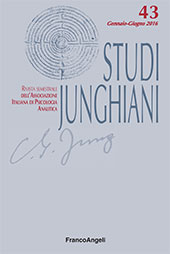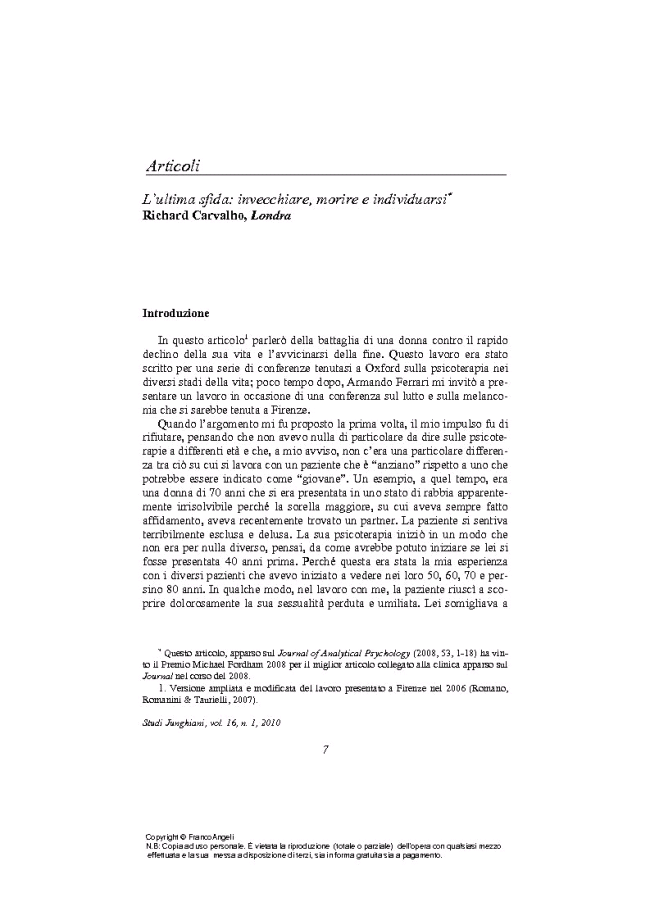L'ultima sfida : invecchiare, morire e individuarsi
7-26 p.
The final challenge: ageing, dying, individuation.
Questo lavoro tratta della psicoterapia di una donna che passava da ciò che Waddel (1998) avrebbe chiamato "l'età più avanzata" a un'"età successiva", con quest'ultima intendo l'inevitabile declino verso il morire e la morte. Per quanto sgraditi possano essere tali sviluppi per l'individuo, essi sono nondimeno l'attività del soma, e quindi attività del sé, deintegrate. Gran parte del lavoro psicoterapeutico fu centrato sul compito di rendere la paziente capace di entrare in relazione e accettare i correlati emotivi di tale processo, che lei tendeva a non riconoscere come proprio e a negare attraverso una scissione tra corpo e mente che comportava una relazione interna depressiva che durava da lungo tempo. L'aiutare il contatto con se stessa le permise un più forte senso di compagnia interna e di pace, e forse facilitò un più semplice processo del morire, che comportò un sé riconciliato con se stesso piuttosto che estraneo. Da un punto di vista tecnico, l'approccio implicò una grande concentrazione sulla relaz
ione intrapsichica piuttosto che sulla relazione paziente-analista, e ciò viene brevemente discusso nei termini del lavoro di Armando Ferrari, morto anche lui poco prima che questo lavoro venisse presentato per la prima volta, e al quale viene in parte dedicato. [Testo dell'editore].
This paper is about the psychotherapy of a woman who passed from what Waddel (1998) would term "older age" to "later life", by which latter I mean the inevitable decline into dying and death. However unwelcome these developments may be to the individual, they are nonetheless activities of the soma, and therefore activities of the self -deintegrates. Much of the work of the psychotherapy centred on the task of enabling the patient to relate to and accept the bodily and emotional correlates of this process, which she tended to want to disown and deny by means of a split between mind and body along the lines of a longstanding internal depressive relationship. Permitting her contact with herself allowed her a much greater sense of internal company and peace, and arguably facilitated an easer process of dying, involving a self reconciled with itself rather than one at odds. Technically, the approach involved a greater concentration on the intrapsychic relationship between patient and analyst, and this is briefly d
iscussed in terms of the work of Armando Ferrari who had himself died, shortly before the paper was first presented, and to whom therefore it is in part a homage. [Publisher's Text].
Forma parte de
Studi junghiani : rivista semestrale dell'Associazione italiana di Psicologia Analitica : 31, 1, 2010-
Artículos del mismo número (disponibles individualmente)
-
Información
Código DOI: 10.3280/JUN2010-031002
ISSN: 1971-8411
MATERIAS
KEYWORDS
- Morte, depressione, deintegrazione, morire, Ferrari, Matte Blanco, vecchiaia, Sé.
- Death, depression, deintegrate, dying, Ferrari, Matte Blanco, old age, self



